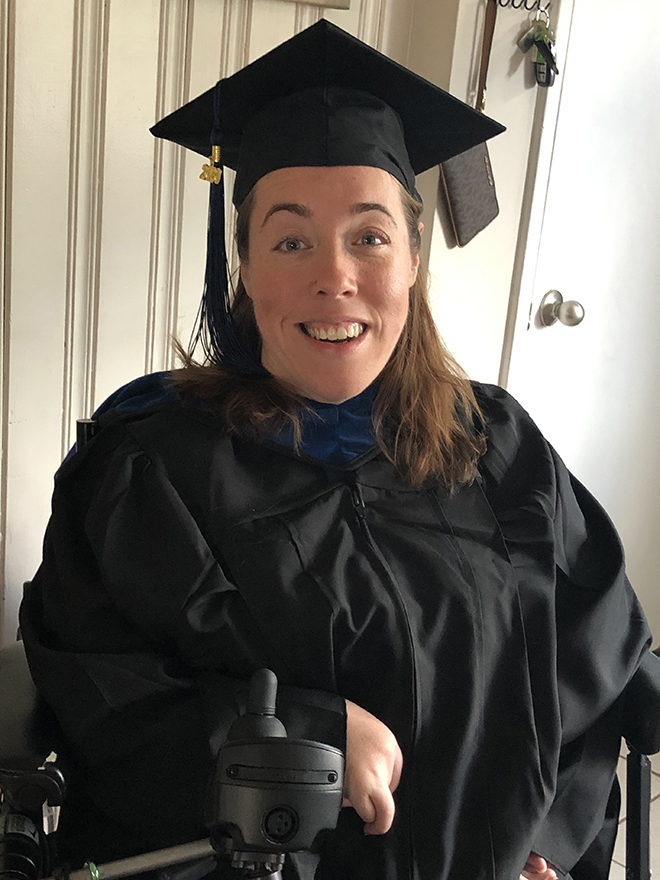
Dean Weil, members of the faculty, and guests, it is an honor to represent our class. On behalf of my fellow graduates, I would like to extend our most profound appreciation to our family and friends. Without their unwavering support this journey would not have been possible.
When I began the PhD program, I would never have imagined giving the commencement speech from my home. These certainly are challenging times. And as bizarre and difficult as these times are, COVID-19 has reinforced to me—and likely to my fellow graduates—the reason the Heller School is so important. Why we initially enrolled.
In times of crises, we see that existing inequalities only become more pronounced. While COVID-19 is said to “not discriminate,” that is entirely untrue. Indeed, because of structural inequities that cause pervasive disparities, members of marginalized communities, especially people of color, immigrants, LGBTQ individuals, and people with disabilities, are disproportionately affected by the pandemic. People of color have higher rates of illness and death caused by COVID-19. Meanwhile, states are proposing policies to ration health care for people with disabilities, like me. The injustices occurring are not a result of one’s identity, but rather a consequence of structural oppression that devalues certain populations.
Of course, these disparities are not surprising to those of us graduating from the Heller School. We came here because we were frustrated by oppression and inequities. We knew there was more we could be doing. And, in the pursuit of the school’s motto, “Knowledge Advancing Social Justice,” we have learned ways to leverage research to effectuate change.
First as a social worker and then as an attorney, I have continuously sought opportunities to advance the rights of people with disabilities. It is that passion that led me to the Heller School, and specifically, to the Lurie Institute for Disability Policy. Although I loved my advocacy work, I found myself increasingly frustrated by both the quantity and quality of research relating to people with disabilities, especially those who are parents. I decided if no one else was going to create relevant research that was useful to the disability community, I would. However, to do so, I needed to learn how actually to conduct research. Six years later, I have gained the tools and knowledge to effectively use research to reform disability policy.
But, I also learned something less expected and equally important. From income inequality to racial disparities to uneven access to behavioral health, students are exposed to a range of important issues at the Heller School. The lessons I learned from both the classes I took and the students and faculty I spoke with broadened my worldview on social justice. As Audre Lorde aptly stated, “There is no such thing as a single-issue struggle because we do not live single-issue lives.” Inequities transcend identities and experiences. That’s why it’s important that we are all in this together, and we must join one another to fight for a more just society.
As we graduate today, we each embark on the next chapter in our lives. Some of us will go into academia; others will work for the government or private sector. And yet, no matter where we end up, we all leave the Heller School better prepared to address social inequities and transform policies. The responsibility is daunting; but now, more than ever, urgently needed.
Congratulations to my fellow graduates—we did it! The world needs us, and I can’t wait to see what is next for each of us!
